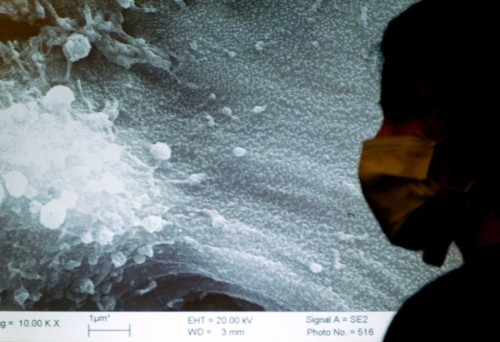Saudi Arabia Almost Triples Mers Death Count After Data Review

Saudi Arabian officials have revealed that both the death toll and total incidence of the Middle East respiratory syndrome coronavirus have increased dramatically, with a spike of unreported cases occurring in March, April and May.
The Ministry of Health's Command & Control Centre said the total number of people infected with the disease is 688, with 282 deaths since 2012.
Around a month ago, Saudi officials said 339 Mers-CoV cases had been reported, with 102 deaths.
The review was carried out to ensure a greater understanding of the outbreak and to improve measures to combat the disease.
Of the 688 cases, 53 people are still receiving treatment and 353 have recovered from the virus.
The Ministry said it is now putting new practices in place to ensure case information is more accurate, as well as "reliable and timely". This will include the development of an electronic reporting system and better mechanisms to report cases to the Ministry.

Tariq Madani, head of the Scientific Advisory Board within the Ministry, said: "The Ministry is committed to fully understanding Mers-CoV and putting in place the policies needed to protect public health and safety.
"To do this the Ministry has reviewed historical cases of Mers-CoV to give a more comprehensive understanding of the facts.
"While the review has resulted in higher total number of previously unreported cases, we still see a decline in the number of new cases reported over the past few weeks."
The announcement comes as scientists announce a breakthrough in disabling part of the Sars virus that makes it able to hide from the immune system.
Researchers at Purdue University are involved in studying and creating potential treatments for Mers-CoV – because the Mers and Sars viruses are related, the ability to disable one will help provide a shortcut in finding a treatment for the other.
They captured the molecular structure of a key enzyme in Sars and discovered how it strips a host cell of the proteins involved in triggering an immune response.
Lead author Andrew Mesecar said: "This is a first step toward creating a weakened and safe virus for use in an attenuated live vaccine.
"This also could serve as a molecular roadmap for performing similar studies on other coronaviruses, like Mers, because this enzyme appears to be common to all viruses within this family."
© Copyright IBTimes 2025. All rights reserved.






















